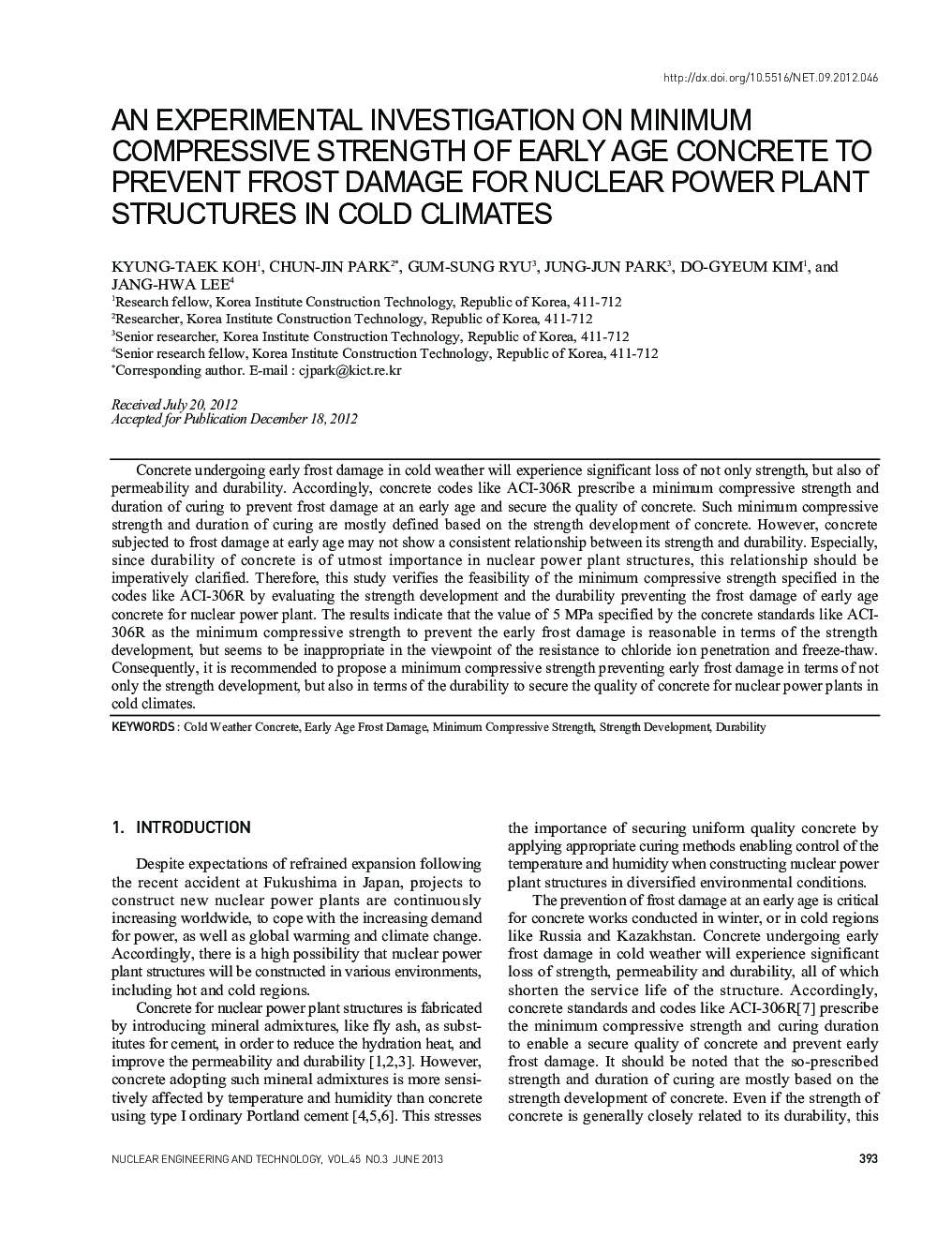| Article ID | Journal | Published Year | Pages | File Type |
|---|---|---|---|---|
| 1740242 | Nuclear Engineering and Technology | 2013 | 8 Pages |
Concrete undergoing early frost damage in cold weather will experience significant loss of not only strength, but also of permeability and durability. Accordingly, concrete codes like ACI-306R prescribe a minimum compressive strength and duration of curing to prevent frost damage at an early age and secure the quality of concrete. Such minimum compressive strength and duration of curing are mostly defined based on the strength development of concrete. However, concrete subjected to frost damage at early age may not show a consistent relationship between its strength and durability. Especially, since durability of concrete is of utmost importance in nuclear power plant structures, this relationship should be imperatively clarified. Therefore, this study verifies the feasibility of the minimum compressive strength specified in the codes like ACI-306R by evaluating the strength development and the durability preventing the frost damage of early age concrete for nuclear power plant. The results indicate that the value of 5 MPa specified by the concrete standards like ACI-306R as the minimum compressive strength to prevent the early frost damage is reasonable in terms of the strength development, but seems to be inappropriate in the viewpoint of the resistance to chloride ion penetration and freeze-thaw. Consequently, it is recommended to propose a minimum compressive strength preventing early frost damage in terms of not only the strength development, but also in terms of the durability to secure the quality of concrete for nuclear power plants in cold climates.
